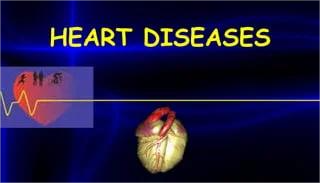Sepsis basis symptoms, causes and 3 main stages
Sepsis basis symptoms, causes and 3 main stages Sepsis is a life-threatening medical condition that arises when the body’s response to an infection causes widespread inflammation and damage to its own tissues and organs. It occurs when the immune system, while trying to fight off an infection, triggers an overwhelming inflammatory response.
What causes a sepsis infection?
Sepsis basis symptoms, causes and 3 main stages The immune system usually keeps an infection limited to one place. This is called a localised infection. To do this, the body produces white blood cells.
White blood cells travel to an infection site to destroy the germs causing the infection. This triggers tissue swelling, known as inflammation. This helps to fight the infection and prevent it from spreading.
Sepsis occurs when this process fails, and the infection spreads throughout the body. This leads to an overactive immune response, causing widespread inflammation and damage to tissues and organs.
Sepsis basis symptoms, causes and 3 main stages
Sources of Infection
Sepsis can be triggered by an infection in any part of the body. The most common sites of infection that lead to sepsis are the:
- Lungs
- Urinary tract
- Tummy (abdomen)
- Pelvis
Symptoms of Sepsis
Symptoms of sepsis may include:
- Change in mental status
- Fast, shallow breathing
- Sweating for no clear reason
- Feeling lightheaded
- Shivering
- Symptoms specific to the type of infection, such as:
- Painful urination from a urinary tract infection
- Worsening cough from pneumonia
Symptoms of sepsis are not specific. They can vary from person to person, and sepsis may appear differently in children than in adults.
Symptoms of Septic Shock
Sepsis may progress to septic shock, which is a severe drop in blood pressure. Progression to septic shock raises the risk of death.
Symptoms of septic shock include:
- Not being able to stand up
- Strong sleepiness or hard time staying awake
- Major change in mental status, such as extreme confusion
When to See a Doctor
Any infection could lead to sepsis. Go to a health care provider if you have:
- Symptoms of sepsis
- An infection or wound that isn’t getting better
Symptoms such as confusion or fast breathing need emergency care.
Causes
Any type of infection can lead to sepsis. This includes bacterial, viral, or fungal infections.
Infections that more commonly cause sepsis include:
- Lungs, such as pneumonia
- Kidney, bladder, and other parts of the urinary system
- Digestive system
- Bloodstream
- Catheter sites
- Wounds or burns
Risk Factors
Some factors that increase the risk of an infection leading to sepsis include:
- People over age 65
- Infancy
- People with lower immune response, such as:
- Those being treated for cancer
- People with human immunodeficiency virus (HIV)
- People with chronic diseases, such as:
- Diabetes
- Kidney disease
- Chronic obstructive pulmonary disease (COPD)
- Admission to intensive care units or longer hospital stays
- Devices that go in the body, such as:
- Catheters in the vein (intravenous)
- Breathing tubes
- Treatment with antibiotics in the last 90 days
- A condition requiring treatment with corticosteroids, which can lower immune response.
Complications
As sepsis worsens, vital organs such as the brain, heart, and kidneys don’t get as much blood as they should. Sepsis may cause atypical blood clotting, leading to small clots or burst blood vessels, which can damage or destroy tissues.
- Mortality rate for septic shock is about 30% to 40%.
- An episode of severe sepsis raises the risk for future infections.
Most people recover from mild sepsis, but severe cases can lead to long-term complications.
Stages of Sepsis
There are three stages of sepsis:
- Sepsis:
- An infection gets into your bloodstream and causes inflammation in your body.
- Severe sepsis:
- The infection and inflammation are severe enough to start affecting organ function.
- Septic shock:
- This severe complication of sepsis causes a significant drop in blood pressure and may lead to serious complications like:
- Organ dysfunction
- Respiratory or heart failure
- Stroke
- Possible death
- This severe complication of sepsis causes a significant drop in blood pressure and may lead to serious complications like:
While sepsis often occurs in hospital settings, it can also happen in other locations. In some cases, you might not even know you have an infection that could potentially lead to sepsis.


